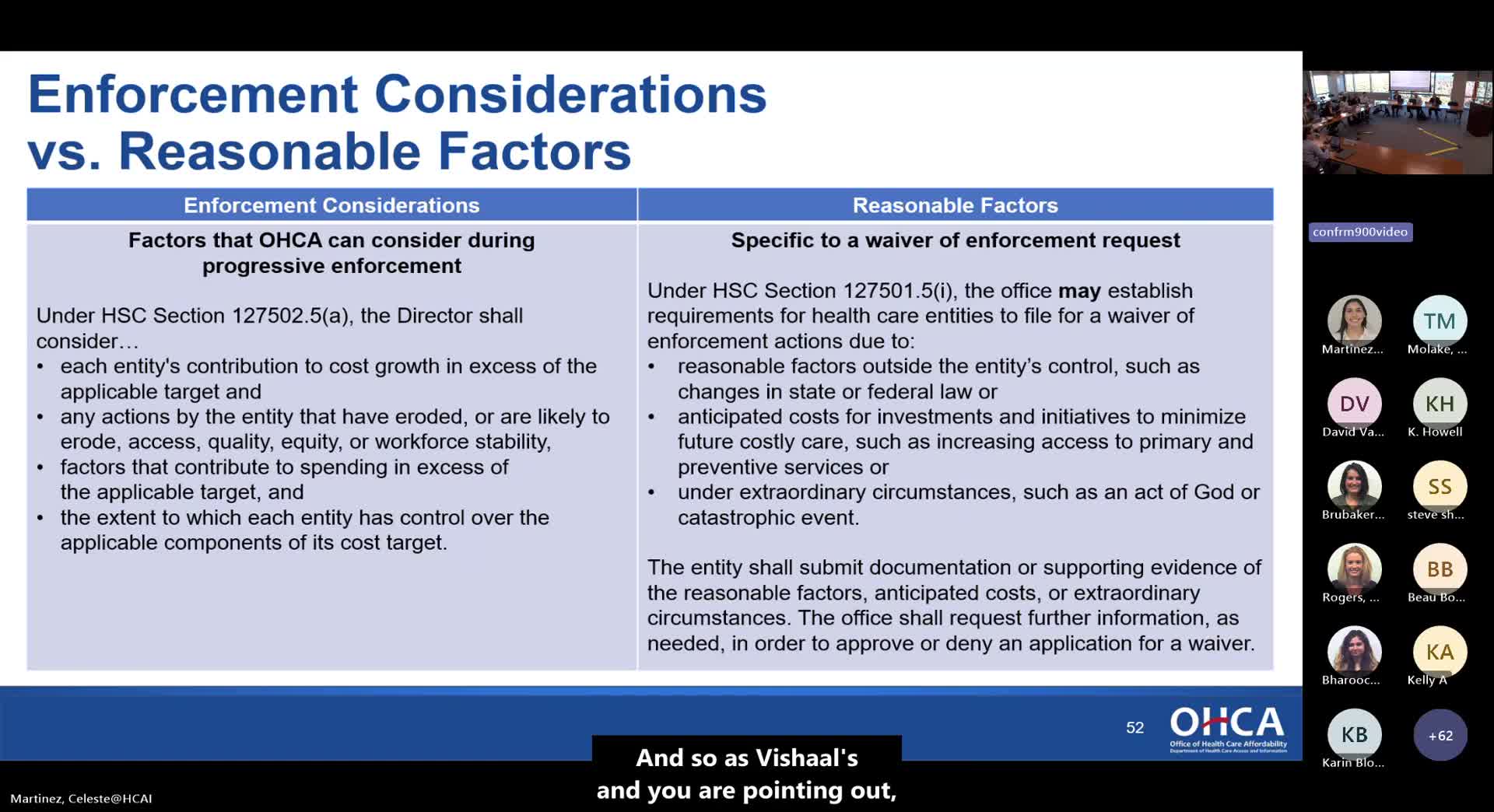Affordability board tables vote on data-submission penalties after lawmakers, advocates call for steeper fines
Get AI-powered insights, summaries, and transcripts
Subscribe
Summary
The Health Care Affordability Board paused a final vote on a staff proposal that would have assessed a $5 per-member penalty for failure to submit required data, after board members and public commenters argued the figure is too small to deter noncompliance and asked staff to return with revised options in November.
The Health Care Affordability Board on Oct. 17 declined to finalize a proposed penalty schedule for health-plan data submissions and asked staff to return with a revised recommendation at the board's November meeting.
Assistant Deputy Director CJ Howard outlined a multi-step penalty approach staff proposed: two flat untimely-submission fines ($10,000 and $50,000) followed by a per-member failure-to-submit penalty of $5 in the first noncompliant year that would double in each subsequent year the submitter failed to comply. Staff said the first per-member penalty would be applied in December if a data submitter had not provided the complete files and that the per-member amount would be made public when assessed.
Board members and public commenters pushed back on the proposed $5-per-member figure as too low. "If plans can treat the penalty as a cost of doing business, it will not induce compliance," Board member Ian Lewis said, citing examples of large penalties elsewhere that nonetheless did not solve compliance problems. Several public commenters, including Health Access California and the National Union of Healthcare Workers, urged larger penalties scaled to national revenues or to plans' profits and tangible net equity.
Staff noted other remedies would remain available, including administrative enforcement actions to compel data submission and referral to licensing or regulatory agencies. Heather Klein Hoganson, assistant chief counsel for compliance, explained that if the office pursued an administrative action and an Administrative Law Judge ordered payment and production of data, additional enforcement remedies (including interest and court enforcement) could follow.
Because board members wanted clearer, stronger escalation mechanics and asked staff to account for the value of timely data for OCA's reporting and for the statewide spending-target work, Chair Sandra Hernandez proposed tabling the item so staff could return with a revised penalty menu in November. "Our goal is to get the data on time; no one wants to impose fines," she said. "But if the sanctions are not consequential, the office cannot get the information it needs to enforce the spending targets."
What's next: Staff will return to the board in November with an updated penalty proposal that reflects board and stakeholder feedback on scale, timing of escalation, and integration with administrative enforcement options.
Key details: the staff proposal would have assessed an initial $5-per-member failure-to-submit penalty, doubling each subsequent noncompliant year; two earlier flat penalties of $10,000 and $50,000 were proposed to apply when submitters missed interim deadlines. The board did not adopt the proposed schedule at the Oct. 17 meeting.
Quotes
"If plans can treat the penalty as a cost of doing business, it will not induce compliance," Board member Ian Lewis said during the discussion.
"We still want the data. Even if it's late we'll pursue it, but the penalty must reflect the real-world cost to the office and to consumers when data arrive too late," CJ Howard, assistant deputy director, told the board.
Ending
The board emphasized timeline sensitivity: staff said timely submission matters because the office aggregates plan files for multi-year comparisons and to measure provider and payer performance. The board directed staff to return with alternatives that are more likely to deter deliberate noncompliance and that spell out how penalties interact with administrative enforcement.
